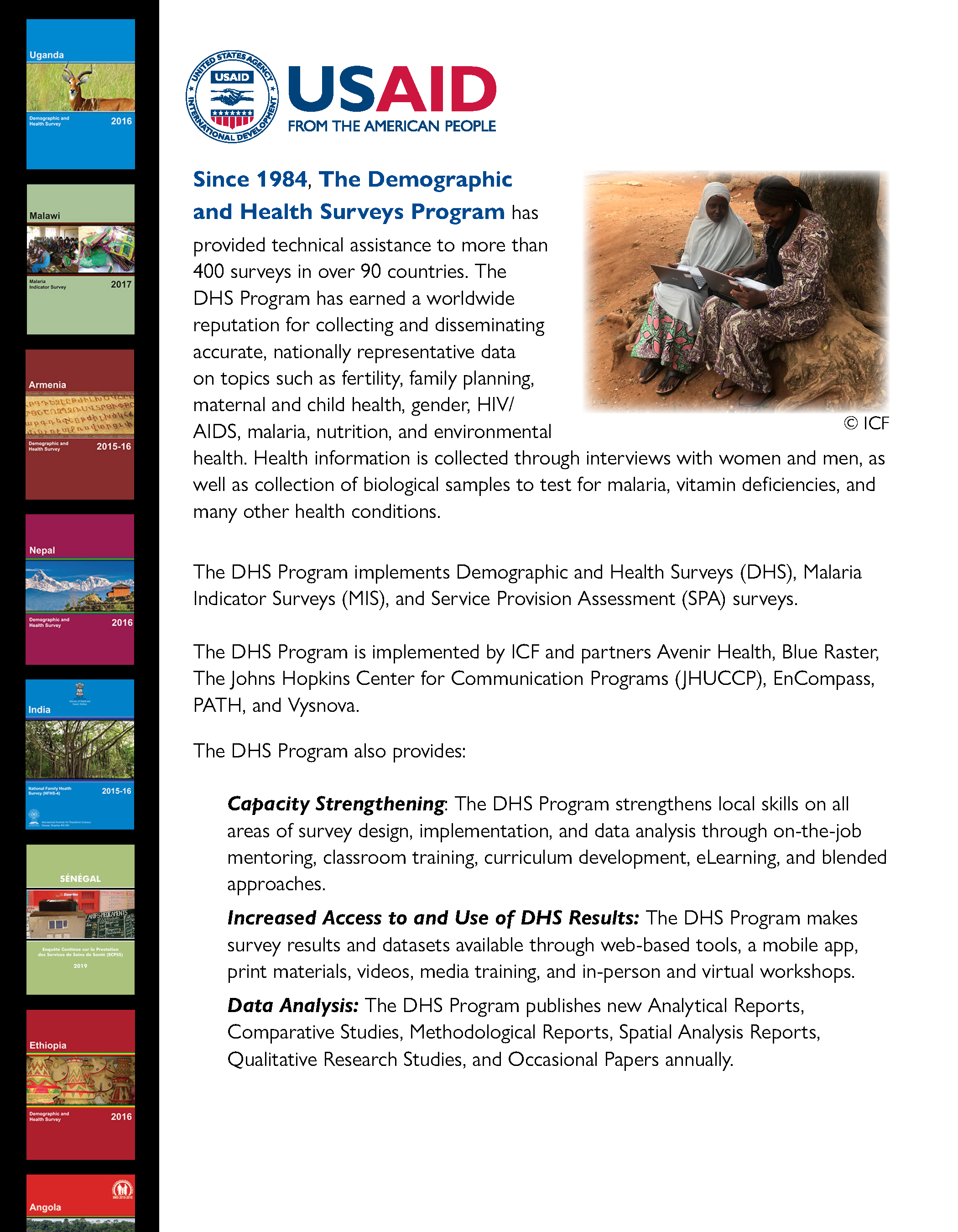Press Releases
Use and availability of family planning services show marked improvement in Ghana
Calverton, MD. Knowledge and use of family planning have increased markedly in Ghana, and the country is well on its way to achieving the population policy goals set forth by the Ghanaian government. A trends report published recently by the MEASURE DHS project found that Ghana has now surpassed its goal of lowering the nation's total fertility rate to 5.0 children per woman by the year 2000, as it now stands at 4.4. The current contraceptive prevalence rate of 19 percent for modern methods is another government-established goal that has been exceeded (15 percent by the year 2000).
Mass media exposure has apparently played a large part in spreading the word about contraceptive use and sexually-transmitted infection prevention. "A major IEC campaign called Life Choices, which aimed to reposition family planning (from being a purely clinical or health issue to being a choice one makes in life according to personal reproductive goals), may have contributed significantly to the increased use of modern methods" wrote the authors of the 2003 Ghana DHS final report.
Concurrently with the trends report, DHS released another study that analyzed data gathered in Ghana between 1993 and 2002 on the availability, functionality, and quality of family planning services. Key results of the study show that almost all health facilities now offer family planning services five or more days a week. It was also found that availability of sexually transmitted infection services at family planning facilities has grown substantially and that most facilities now report having both clean gloves and sterile syringes and needles. Finally, one in three facilities now have piped water, electricity and functioning client toilets or latrines.
The family planning services study also documents the challenges that must be addressed for progress to continue, including improving contraceptive supply distribution and promoting condom use as a method of contraception as well as an intervention for preventing sexually transmitted infections and HIV. By 2020, the government of Ghana aims at reaching a modern contraceptive prevalence of 50 percent.
Ghana Trend Analysis for Family Planning Services 1993, 1996, 2002
Trends in Demographic, Family Planning, and Health Indicators in Ghana
